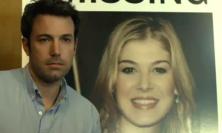The tenth anniversary of the founding of Google, which is marked this month, provides an opportunity to reflect on the continual development in the technology behind and potential of the media. In the first of a two-part series on Thinking Faith, James Hanvey SJ explores some of the issues that must be considered if we are to become responsible producers and discerning users of the media.
The media – by which I mean all the information and communications technologies and the genres that they both create and service – constitutes, in effect, a whole world, with all its different dynamics: a world which is both creative and utilitarian, experimental, transitory and ephemeral and yet also now a permanent feature of contemporary lives. In some key respects it is also a unique world: because it is driven so much by emerging technological refinement and innovation it is a world of constant process and change; it is a world which is pregnant with extraordinary potential – a potential which is itself always developing. I think a strong case could be made for saying that it is this technology, and the capacities that it gives and the new social and personal dynamics that it creates, which defines our ‘post-modern’ experience. That is why the questions about what ethic or ethics shape our use and interactions with these new potentialities, especially in the social and personal realm, are complex and urgent. In attempting to identify the values that apply to our production and usage of the media, I believe that Christian theology, together with the insights of some social critics and philosophers, may be a useful place from which to start
Presuppositions
In all that follows I shall be guided by three presuppositions:
First, as I have indicated, the capacities now available through information and communications technologies place us in a new situation. It is new, not just in terms of the technology but in terms of its availability and scope. It transforms both the public social space and personal and interpersonal space as well. In other words, we are engaged in new configurations and new ways of communicating and relating. We are alert to the darker side of these technologies; through increased surveillance, the capacity to gather, store, and manipulate vast amounts of personal data gives persons and agencies unprecedented access to our lives in their most intimate details. But apart from such obvious questions about privacy and liberty, the whole phenomenon of networking and the ability to form virtual relationships without the physical barriers of time and space transforms our sense of self and community. Again, relationships are conducted in a new ‘open space’ - Facebook and Twitter are obvious examples. The technology becomes not only a means of powerful self-expression but also of self-invention; it even gives us the possibility of immortality (does anything ever really get lost from the web?) and even a ‘second life.’ Again there are sinister aspects to this because the ‘virtual’ changes our experience of reality and truth and therefore the assumptions we can make about our dealings with each other, but it also gives whole new opportunities for social movements and the rapid formation of communities around events or causes. In an unprecedented way the technology is no longer the preserve of the powerful – either governments or other economic or social elites – it is an extraordinary democracy. Not only does this emergent technology change our relations to each other but it also changes the relationship we have to ourselves.
My second presupposition is that the media is essentially a good. We are well aware of the dangers that it brings but we need to balance this with a more explicit recognition of its benefits. Some of these benefits are obvious: the media creates a more informed and mature political and social interaction between individuals and the economic, political and social official and unofficial power brokers of our culture. The media is, of course, one of these power brokers. There are also the very considerable social benefits of information technology for the availability of education. And, to see the enormous capacity for the media not only to serve the common good but to build a real sense of national and international solidarity, we only have to look at its critical role in mobilising responses to the East Asian tsunami, to famines and genocides, and to political violence in places like Burma, Zimbabwe and the Middle East, and the courage and generosity of those working in the media who monitor and report human rights abuses. Imagine what it would be like if we never knew about Guantanamo or Bosnia? Without the many women and men who risk their lives and careers to expose these situations and the corruption within societies, those whom oppression would silence or erase would have no voice and no memory. We would all be in danger of becoming the ‘desaparacidos.’
My third presupposition is freedom. Whatever the constraints and pressures, there is nothing obviously deterministic about the development of the media, its technologies and its use. The media in all its vastness and opportunities – the whole new world that we are both discovering and creating – is the realm of our freedom. It is this that raises the question of values and moral choices. These cannot be avoided and they must operate at several different levels: there is the level of social responsibility and the hard work of determining what sort of approach and product will serve the common good. There is the level of personal and professional integrity - it is not good enough in this context simply to produce a commodity or a product. There are aesthetic and critical criteria. There are also the values that are on display in the making of programmes and engagement with people and issues; these are not, I think, particularly new values, they remain those of respect for people and for the truth, of not consciously misleading or exaggerating. In other words, every media activity will, like the activities in the rest of our lives, involve a whole range of moral questions and require us to balance one set of values over another.[1]
If then, we are in the realm of our freedom, we must decide what values we wish to guide us and shape our actions. We need to understand the dynamics in which we are involved. By way of making a start let me set out three considerations which might open up the epistemological and social dimensions of the challenges that arise in our media-dependent society.
Truth and Reality
Most people do not give too much consideration to the problematic nature of ‘truth’. There are various philosophical positions about what truth might be, but for our everyday business I think most of us work with some version of the ‘correspondence theory of truth’. By this we assume that there is a knowable reality that can be verified. We can make statements which are coherent and intelligible in themselves about this reality and these statements – even if they have the quality of opinions or theories - can be converted into either warranted beliefs or true statements by reference to the circumstances, objects and situations which they purport to speak about.
Occasionally, we will encounter paradox, or statements that just do not make sense either because they are internally incoherent or because the reality about which they may or may not accurately speak is so totally outside our experience or cannot be verified in the usual way. We are normally very discriminating about the classes of statements or their genres – fiction, hypotheticals, explanations which are convincing but not provable, irony and deception. We know for instance that language works in very varied and subtle ways – metaphors, similes etc. – which, although not ostensive or directly referential, nevertheless capture and express a truth which we can recognise. So, though we may not be skilled philosophers, our normal experience and practice means that for most of the time we are fairly shrewd about detecting truth and judging falsehood. Of course, much of what we accept as ‘true’ we accept on what we take to be justified authority. That becomes problematic when the authority is compromised or deliberately deceives for its own purposes. We attribute enormous authority to reporting, interpretation or construction by the media although we are well aware of the ethical problems with docu-fiction or faction when facts are mingled with constructions but the seams and the shifts of genre are not indicated, perhaps deliberately, so that we cannot distinguish fact from credible inference from fiction.
This is one set of problems around the relationships between ‘facts’, authority, language and truth. It alerts us to another closely related set of issues: the construction of truth and meaning. This brings us to the other standard position on the question of truth, namely, the coherence theory. Loosely defined, this holds that a statement is true if it coheres within a system of statements. Large questions about the meaning and validity of the system can be raised, of course, but we can refine our notion of coherence to take in comprehensiveness, consistency, and cohesion. Even though we may not formally hold this theory, implicitly we often combine the correspondence approach with the coherence notion of truth in a weak form.[2] In other words, if something has a sort of general ‘conceptual fit’ with the way in which we believe the world to be – including its possibilities and potentials – then we will tend to accept it. At the very least we will regard it as plausible and we may even act upon it. By the same token, if it does not, we will tend to dismiss it. This points to the ways in which we live in a world that we construct not only from what we know but from what we believe and, in some ways, from what we desire or want to be the case.
We speak casually about the ‘real’ and ‘reality’; sometimes we mean it to refer to that which is objective and verifiable by everyone, at other times we mean it to refer to our personal experience, ‘our reality’, the way the world looks and is for us. How we see it, experience it, understand it, depends on a whole range of factors from our natural capacities to our education, our gender and culture, our beliefs about what can and can not be, our systems of meaning which give us the resources to understand or make it difficult to fit something into our worldview. Then there is a whole series of moods and feelings which we bring or which are generated by the circumstances or the communicators, and these determine and shape what reality is for us in a more extensive way than we might wish to admit. Even from these brief observations we can begin to appreciate how the human experience of ‘reality’ is a very complex experience. It is not just an experience of what is ‘there’ because what is ‘there’ is always ‘there’ in a relation to us. It is has a complex location not just in time and space but in the cultural networks of meaning and symbol and in our own complex cognitive, psychological, physical and emotional networks. All these things provide a rich context in which we inhabit, create, shape and interact with ‘reality’.
So much of what we know about the world, how we experience it and engage with it is now mediated through the media. This is why these epistemological and phenomenological questions are all entangled in questions about the values and ethics that govern it. Behind the question of the construction of our ‘realities’ and the truths which we believe we know is the other question of power. There is a simple adage: Pontius Pilot is a modernist: he asks, ‘What is truth?’, but Fredrick Nietzsche is a post- modernist: he asks, ‘Whose truth?’ One is a question of epistemology; the other is a question of power. Just as we have alluded to the way in which the media, its powerful technology and its immediacy, combined with the fact that this technology is a popular one (think of the capacity for blogging and sending pictures), has changed the conduct of modern warfare, so it also changes the shape of modern politics. The media has enormous power and that is why we need constantly to ask, ‘Whose truth?’ - What purpose is being served? Also, what truths are not being spoken or communicated and in whose interests are they hidden or silenced? This is why while, on the one hand, a responsible critical freedom is essential to the media, on the other, it needs to be accountable so that it can remain at the service of the common good, and not itself become a tyrannical all-powerful Prospero.
Cyborg Future
A cybernetic organism is one that has both artificial and natural components. The sinister possibility of that combination is the fearsome ‘Borg’ from Star Trek, although we can also see a rosier future in which bionic limbs replace those that have been lost through disease or accident. However, I suggest that we are all, to some extent, cyborgs, thanks to the interactive and adaptive nature of communication and information technologies. Even a few minutes on any high street will present you with people who have mobile phone extensions and earpieces which seem to be permanently part of their bodies. The thought of being disconnected induces a sort of panic. In the past, the addictive personality would have instantly reached for the cigarette, the coffee, or the drink at the end of a meeting or during the interval in a performance. Now, everyone is immediately connected to his or her iPhone; without the virtual fix life is impossible, we seem no longer to exist and the great galaxy of the web has moved on without us!
We have at our disposal a technology which enhances our capacities for self-expression and projection not only of our ‘truths’ but also of our untruths and fantasies. Yet this same technology can also capture us within its web and seduce us. It has unprecedented access into our inner space – we run the risk of becoming Legion, our minds inhabited by thousands of voices and authorities.
This new intimacy and the capacity of the new media to penetrate deep into the inner life of the person, also produces an inversion of the outer and the inner worlds. In a paradoxical way, while offering more freedom and a greater participation in the new cyber public space, we place at risk the sanctuary of the inner life. The blurring of the boundaries between the inner and outer world can also limit the capacity for transcendence which nourishes the spirit. The planes of depth and extension become collapsed. There is the impression of an infinite and varied horizon but in actual fact it is the illusion of a compressed perspective.
The erosion of interiority is not just psychological, it is ontological in the sense that we can lose or surrender our substance; the person, and their sense of the world they actually engage with and inhabit can be flattened into the one dimension of the virtual. Surface existence is a dependent existence and it is also vulnerable to being manipulated. On the negative side we can see the impact of ‘text bullying’ or the ways in which relationships, their intimate moments and breakdowns, are posted on Facebook or enter the blogosphere with distressing consequences for those who are its subjects.
There is another dimension to this reversal of worlds: the consumer becomes the consumed. The very nature of the media and the technology which underpins it creates a rapaciousness and hunger for the immediate, the attention-grabbing image, event or line, because there is so much competing for our attention. Often the success of a production is gauged by the length of time it can hold our attention or be retained in our memory. So, the activity of the media produces a world that is hyperactive, immediate, and transitory. It can substitute repetition – the pressure of 24 hour broadcasting – for memory and reflection. With astonishing skill it can raise the status of an event from relatively trivial to major and all consuming, but just as quickly it can consign it to oblivion. By the same token, it can take a significant event – human or political – such as a natural disaster, make us intensely aware of it and personally engaged with it and, within a few days, distract us with something that equally claims our attention. The effect is to flatten the planes of judgement and discrimination. It commodifies human beings and their lives. The most morally questionable of these are the programmes which make a spectacle out people’s pain and dysfunction.
Manipulation and Overload
Some of the themes we have been examining are taken up by the French sociologist and cultural critic Jean Baudrillard. Baudrillard has developed a sophisticated, provocative critique of our media-saturated world. One of his major themes is that of the ‘Simulacrum’, the way in which the world is mediated to us through the ‘image’ which itself takes the place of reality so that we now inhabit the world of the ‘hyperreal’. Controversial and stimulating though this aspect of Baudrillard’s thought is, I want to look at another significant aspect of his social critique and analysis of the role of the media.
Baudrillard characterises contemporary culture as one that suffers from ‘information overload’. Far from extending our freedom to choose and providing us with material for better judgement concerning what we should choose, the effect is to induce a paralysis. Overwhelmed by options and information we are faced with radical uncertainty of desire, choice, opinion. Whatever its effects on our personal lives, this undermines democracy because the volume of information and the expansion of our desires induce two strategies of power: “About the media you can sustain two opposing hypotheses: they are the strategy of power, which finds in them the means of mystifying the masses and of imposing its own truth. Or else they are the strategic territory of the rule of the masses, who exercise in them their concrete power of the refusal of truth, of the denial of reality. Now the media are nothing else than a marvellous instrument for destabilising the real and the true.”[3] Either way, there is a departure from reality which leads Baudrillard to argue that the media are part of a flight from reason into irrationality. It is possible to raise many questions about the assumptions and epistemology underlying Baudrillard’s argument, but, even when we accept that, I think there is also an insight which can be recognised. It raises the question of the media’s responsibility to the political and also its service to the maintenance of the position of reason in the public space.
James Hanvey SJ is Director of The Heythrop Institute for Religion, Ethics and Public Life.
This article is adapted from a presentation to the 2008 Churches’ Media Council Conference.
[1] For a bleak but challenging analysis of these questions cf. Paul Vallely’s “The Media, The Church and The Truth”, Priest and People 8 (1994) pp.175-180.
[2] For a useful discussion of the limits of the coherence theory cf. What Is the Problem of Coherence and Truth? Erik J. Olsson The Journal of Philosophy, Vol. 99, No. 5 (May, 2002), pp. 246-272.
[3] 'The Masses. The Implosion of the Social in the Media.' p. 217 in Jean Baudrillard, Selected Writings edited by Mark Poster, 1988, Stanford U.P.






